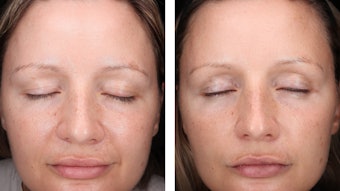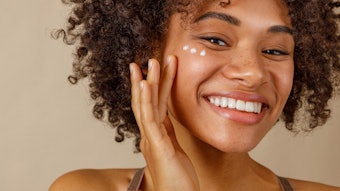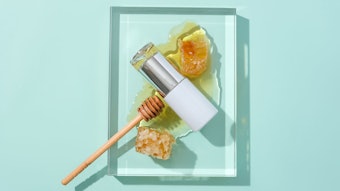Burt’s Bees may be best known for its lip balm but things are about to change; at least, if Celeste Lutrario, vice president of research and development for the company, has it her way. In an exclusive podcast, she shared with Cosmetics & Toiletries findings from new sensitive skin research presented at the American Academy of Dermatology meeting—as well as the company’s motivations for it.
Burt’s Bees has been a pioneer in development of not only lip balm, but natural skin care—and now, color cosmetics—for more than 30 years. According to Lutrario, its product development has followed the founders’ beliefs in the power of natural ingredients to nourish and care for the skin. “Keep in mind that we’re all part of nature and through evolution, people have been using natural products to heal and care for their skin and body,” she said.
A unique aspect about Burt’s Bees as a company is that products are formulated under specific principles rooted in the edict that healthy skin is balanced skin. As such, the company uses natural ingredients with the “right” nutritional profiles.
“We almost address [skin care] like food,” said Lutrario. “We look for vitamins, minerals, essential fatty acids and antioxidants—all with the intention to feed the skin the nutrition it needs to be healthy. And keeping in mind the skin is the largest organ, it needs the same type of care and nutrients that all the other organs in your body need to be healthy.”
The Study: Beyond Parity
In support of this belief and to substantiate its sensitive skin product efficacy, the company commissioned a study in light of the rising incidence of sensitive skin conditions. The goal was to show that nature-based skin care products can, in fact, help skin that is highly sensitive.
“We wanted to prove that natural products are as safe and tolerable as the synthetic products dermatologists currently recommend. This was all done to show the dermatology community that if they have patients requesting natural products, Burt’s Bees is an option they can recommend.” In fact, the results from the study were submitted to the National Eczema Association, which awarded Burt’s Bees its seal of approval for labeling purposes.
Zoe Draelos, M.D., led the double-blind, randomized and controlled study, and Burt’s Bees products were compared with a leading dermatologist-recommended synthetic regimen. A group of 120 subjects was split into three groups clinically diagnosed for cosmetic intolerance, rosacea and eczema.
“I’m not saying natural is better than synthetic or synthetic is better than natural. But we [at Burt’s Bees] have believed for a long time that our products work as well as synthetic products."
-Celeste Lutrario
The subjects using the products were evaluated for overall skin appearance and parameters including visual smoothness, tactile smoothness, clarity and radiance. Results showed the natural Burt’s Bees products actually outperformed the dermatologist-recommended synthetic regimen in all parameters at weeks two and four.
“We were looking for parity, and we expected and hoped it, but in this study, we got better than parity,” said Lutrario. “By week four, all improvements were statistically significant. Some of the actual data is that the nature-based sensitive skin regimen provided an average 33% improvement at week four while the leading dermatologist-recommended regimen provided a 3% improvement at week four.”
Bigger Picture: Natural vs. Synthetic
During the interview, Lutrario emphasized the point of the study was not to discredit synthetic products. She believes there is a place for both, and that both synthetics and naturals work but in different ways.
“I’m not saying natural is better than synthetic or synthetic is better than natural. But we [at Burt’s Bees] have believed for a long time that our products work as well as synthetic products. I bring this up because for so long, there has been a myth in our industry that natural does not work. We believe that it does and it’s because when you’re using products that are nutritive, like naturals, they can be very beneficial for skin.”
So the bottom line? Burt's Bees may put forth a lip-smacking balm, but the battle it is waging is on a bigger front than the lip barrier; it's for the reputation of the larger naturals industry.
For more on the Burt's Bees company philosophy, this clinical study, future Burt's Bees projects and more, listen to our exclusive podcast:











